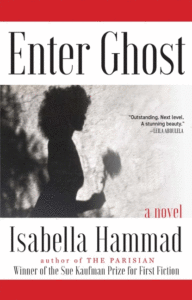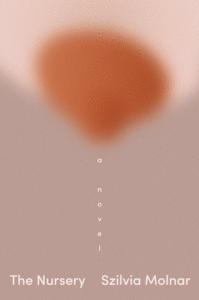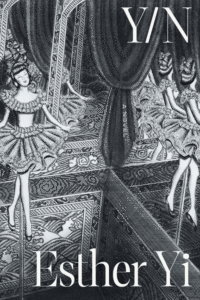
5 Book Reviews You Need to Read This Week
“A powerful brew of a novel, emitting unpleasant sights, smells, and emotions that are rarely captured in print.”
Our bouquet of brilliant reviews this week includes Lily Meyer on Isabella Hammad’s Enter Ghost, Daphne Merkin on Szilvia Molnar’s The Nursery, Mark O’Connell on Adam Kirsch’s The Revolt Against Humanity, Katy Waldman on Esther Yi’s Y/N, and Rumaan Alam on Namwali Serpell’s The Furrows.
Brought to you by Book Marks, Lit Hub’s “Rotten Tomatoes for books.”
*
“Hammad’s elegantly sprawling debut, The Parisian (2019), began in Nablus in the early 20th century and traversed decades of Palestinian history. Enter Ghost, though contemporary, is thoroughly infused with Palestine’s past—and thoroughly haunted by Sonia’s. Hammad, who is both a delicate writer and an exact one, intertwines the two, taking care to give Sonia as many personal ghosts as she does historical ones …
Sonia notes, a little contemptuously, that ‘nothing is more flattering to an artist than the illusion that he is a secret revolutionary.’ Hammad does not indulge in that illusion. Neither is she defeatist in her portrait of art’s role. If she shares any of Sonia’s scorn, it is toward secrecy. In Enter Ghost, concealment and subterfuge end poorly, as the title—and Hamlet—would suggest. Indeed, the novel seems to argue, real growth and connection, both political and personal, cannot begin until everyone’s ghosts have emerged from hiding. Art is, if nothing else, a powerful tool for coaxing them out.”
–Lily Meyer on Isabella Hammad’s Enter Ghost (The New York Times Book Review)
“Maternal characters on the dark end of the spectrum provoke our unease because their monstrous behavior so clearly threatens society’s standards for mothers. They show that mother love isn’t inevitable, and that veering off from the expected response to a cuddly new infant isn’t inconceivable … Now along comes Szilvia Molnar’s The Nursery to bring us down from the clouds into the muck and mire of postpartum reality … Mourning the loss of one’s former life to the implacable demands of motherhood has become fairly commonplace. But for Molnar, this anxiety rapidly expresses itself as the mother’s reaction to the infant herself, her feelings reaching another register entirely. The narrator’s responses to her daughter’s insatiable needs are extreme, flecked with murderous intent, but they remain fantasies or hallucinations—or so the reader hopes …
One of the things Molnar seems to be suggesting is that the line between a wish and acting on a wish is not as inviolable as we like to think, especially when it comes to new mothers, floating between disparate emotions, pressured by the assumptions of others and confronting their own mixed reactions to having created new life … The Nursery is a powerful brew of a novel, emitting unpleasant sights, smells, and emotions that are rarely captured in print; it is frequently disquieting in its brutal, insistent candor.”
–Daphne Merkin on Szilvia Molnar’s The Nursery (The Atlantic)
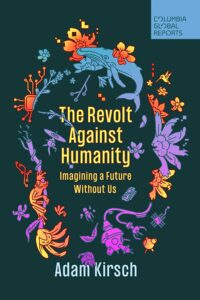
“If humanity were to disappear from the Earth, what would be lost? On the human scale, the answer is everything; but on a planetary scale, it’s tempting to concede that such a loss might amount to a net gain. It is probably not necessary to enumerate the various ways that humanity has been unambiguously bad for the planet and pretty much every other living creature on it. But we tend not to think of our species, and the prospect of its extinction, in such bluntly utilitarian terms. We’d rather we weren’t so terrible, but we’d also like to think, even if it means fooling ourselves, that we might in time become less terrible—and either way, an enthusiastic embrace of our extinction would surely be taking things a bit far. Or would it? This is the question that animates The Revolt Against Humanity…It charts a scattered and heterogeneous constellation of radical thinkers, all of whom share a conviction, in one form or another, that the end of our human era is close at hand, and that such an event, far from being a catastrophe to be evaded or postponed, should in fact be welcomed …
Kirsch makes no attempt to argue that either of these vectors of apocalypse has penetrated to the center of our culture, or that they are likely to. But he does note that extreme apocalyptic prophesies have changed the course of history. (Christ’s whole deal, for instance, was fairly eschatological, as in another sense was Marx’s.) Even at their most absurd and unlikely, such prophecies and their attendant movements can be viewed as symptoms that might assist a diagnosis of underlying civilizational maladies. And Kirsch does not shy from absurd and unlikely ideas, but rather takes them seriously on something like this basis.”
–Mark O’Connell on Adam Kirsch’s The Revolt Against Humanity (The New York Review of Books)
“…a strange, funny, and at times gorgeous new novel…Full of characters that squirm and run together, as if the reader were trying to decipher an out-of-focus eye chart, the book evokes how precarious identity itself can be. It also explores the consequences of subsuming your entire life in a desire for what may or may not exist … <em>Y/N</em> is about the messiness of attempting transcendence … Throughout, Yi displays a keen sense of irony; her oneiric, ceremonious writing has the consistency of a poem put in a blender with an academic paper…Gradually, it becomes clear that Moon, like the character Y/N, is a placeholder. He can’t make the narrator whole—once she has him, she’ll be consumed by longing for longing itself …
For Yi, the goal of scaling one’s appetites is quixotic: the defining trait of a fan is that she lacks a sense of proportion. The narrator cannot seem to decide how big she should be. She longs to seize the spotlight, to swell to an unimaginable size in the eyes of the world. Elsewhere, though, she wants to shed the self entirely, framing her body as a bottleneck through which only a limited number of the universe’s dazzling sensations and perceptions might pass … As Internet fandom has moved closer to the center of culture, there’s been a corresponding attempt to reclaim the figure of the fan. No longer a breathless follower, she is cast as creative, a critical thinker, someone who makes her idol raw material for her own self-fashioning. Yi gleefully shreds this portrait.”
–Katy Waldman on Esther Yi’s Y/N (The New Yorker)
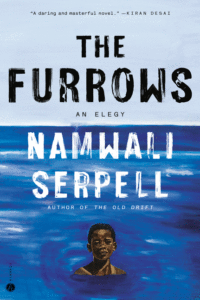
“‘The power of grief to derange the mind has in fact been exhaustively noted,’ Joan Didion wrote in The Year of Magical Thinking, before proceeding with her own account of madness following the death of her husband. This phenomenon is so often observed because it’s timeless, as universal as love. Grief is a natural subject for art, or maybe some art is simply grief made manifest … To communicate the madness of that grief, Serpell undermines the foundation of her own book. This gambit—a story undone by another version of the story—reminded me of Lorrie Moore’s novel Anagrams (1986), in which the hero is either a torch singer or an art historian or a poet. It also made me think of the concept of multiple, coexistent realities, a common trope in the superhero movies my children love …
If the book’s meditative first half is a requiem for a single child, its antic second half becomes an elegy for America’s black citizens … The common thread is elegy, as the title page asserts. The novel seems at first to negotiate a private grief, but it’s also tackling something more vast. And I felt implicated in the American project of racism, since I could muster heartbreak over the boy (Trayvon Martin comes to mind; you can insert dozens of names here) but not over the man (I thought of Tyre Nichols, but again there’s a list from which we might choose). The Furrows elicited an emotional response that dulled over time into a distant ache, dissipated into confusion rather than clarity. Perhaps that’s fitting.”
–Rumaan Alam on Namwali Serpell’s The Furrows (The New York Review of Books)
Book Marks
Visit Book Marks, Lit Hub's home for book reviews, at https://bookmarks.reviews/ or on social media at @bookmarksreads.










